The best badminton players in the world are gearing up for the 2020 season – or, for some, the homestretch of the Tokyo Olympic qualification period – but we take a look here at some of the interesting statistics and records from 2019.
By Don Hearn. Photos: Badmintonphoto
Most major titles by one player or pair: 11
11 titles in one season was a major milestone achieved in 2019 by Kento Momota (pictured right). The Japanese star did most of it on the BWF World Tour, but to those 9, he added both the Asian and World Championship titles.
It appears that this mark is actually a record, at least in the men’s singles discipline. Certainly no other man has made it into double digits in one year in terms of singles titles since the Grand Prix began in the early 1980s. The mark that Momota surpassed is actually a little complicated. Lee Chong Wei won 9 titles in 2010, but added the Superseries Finals crown in the first weeks of 2011.
Actually, if you consider the 2010 Finals as part of the 2011 season, you find the last time that 11 titles in one calendar year went to one pair of shuttlers, as Wang Xiaoli and Yu Yang won 10 more after picking up the title in Taipei.
Of course, certain players have won many more 11 in one year, but they were all playing in two disciplines. The last time was in 2016, when Chen Qingchen won 12 titles. In 2003, Kim Dong Moon won 15 major titles.
This year, Marcus Fernaldi Gideon / Kevin Sanjaya Sukamuljo dropped ever so slightly to 8 titles after winning 9 in 2018 and 7 the year before. Last year’s leaders Zheng Siwei and Huang Yaqiong went from 9 to 7 titles this year.
Youngest and oldest
The youngest World Tour winner was An Se Young (pictured top). First she won the New Zealand Open at 17 and then before the year was out she had also picked up the French Open title and 3 others, all long before her 18th birthday, which doesn’t come until early 2020.
The oldest World Tour winner in 2019 was Lin Dan (pictured left). He was 35 years and nearly 6 months old when he picked up the second Malaysia Open title of his career, making him only slightly younger than Lee Chong Wei was when he won the same title a year earlier. However, he was quite a bit younger than the oldest Super 300 winner of 2018.
The oldest woman to title in 2019 was Greysia Polii. The Indonesian was 31 when she and Apriyani Rahayu won their only World Tour title of the year, at the India Open. However, she had passed the 32 mark by the time the duo won gold at the SEA Games earlier this month.
If you go down to the Super 100 level, you have Mathias Boe (pictured right, with Mads Conrad-Petersen) winning the Canada and Russian Opens at age 39. This was not a record, though, as Robert Mateusiak won a Grand Prix Gold back in 2015.
The only age record set this year came at the World Championships. Hendra Setiawan picked up his 4th men’s doubles world title shortly after his 35th birthday. Previously, the record for the oldest World Champion was held by Sweden’s Thomas Kihlström, who was 34 when he won mixed doubles gold in 1983.
Teenaged World Tour winners: 5
There were five teenagers who won World Tour titles in 2019, down slightly from last year’s 6 and less than half of the all-time (since 2007) high of 13 teens who titled at Grand Prix Gold level or above in 2017.
Leading the way were two Koreans, An Se Young and Baek Ha Na, who each won a Super 750 title, in addition to Super 300 and 100 titles. Also in the category was Satwiksairaj Rankireddy, who won a Super 500 title 3 years after Zheng Siwei was the last teenaged boy to win a Superseries title.
Rounding out the group were U.S. Open singles winners Lin Chun Yi (pictured left) and Wang Zhiyi. Lin, in particular, had the distinction of being the first teenaged boy to win a singles title in an event with six-figure prize money (i.e. Super 300/Grand Prix Gold/4-star) since Lin Dan and Sony Dwi Kuncoro both did it back in the autumn of 2003.
1st-time World Tour winners: 29
This is one figure that went way down in 2019 from the previous year’s 44. But even if we look back before the BWF World Tour to equivalent-level tournaments from the Superseries era, we still find that 14 times, a Super 500 title was won this year by at least one player who had never before won one, or its Superseries counterpart. 5 of these 14 leapfrogged the Super 500 and won a Super 750 first. They were Kim So Yeong and Kong Hee Yong (pictured left), An Se Young, Baek Ha Na, and Melati Daeva Oktavianti. Those whose first Super 500 title in 2019 was also the first of their career included Anders Antonsen, Wang Chi Lin, Dechapol Puavaranukroh, Sapsiree Taerattanachai, Satwiksairaj Rankireddy, Chirag Shetty, Lee Cheuk Yiu, Choi Sol Gyu, and Seo Seung Jae.
A further 15 players won their first Super 300 titles of the year but two of these – An and Kong – became part of the Super 750 title rookies before the year was out. In fact, only 4 of the 11 Super 300 events were without a first-time winner. At the very first one of the year, the Thailand Masters, Loh Kean Yew and Fitriani each won their first major singles title. Then at year’s end, Wang Tzu Wei, Tan Qiang, and Rodion Alimov, and Alina Davletova all won their first titles at Super 300 level.
Interestingly, at the World Championships, only one of the five winners was doing so for the first time. Kento Momota, Matsumoto/Nagahara, and Zheng/Huang were all repeat champions and Ahsan/Setiawan made it to the top of the podium for the third time as a pair. That left Pusarla Venkata Sindhu as the only first-time World Champion. Not only that but she was the first Indian in history to win a world title.
Actually, national firsts were quite rare in the top tier tournaments. Apart from Sindhu, you had Satwiksairaj Rankireddy / Chirag Shetty (pictured) being the first Indian doubles pair to win a Super 500 or above and also Alimov/Davletova becoming the first Russian pair to win a mixed doubles title at a Super 300 (or Grand Prix Gold) event.
Doubles doubles: Continental only
2019 was the first in at least 20 years when no major prize-money badminton event featured a winner of the doubles double. The highest-profile doubles double went to England’s Marcus Ellis (pictured right, with Lauren Smith). After winning men’s and mixed doubles titles at 3 different Super 100 events in 2018, the only podium-topping performance this year was his doubles double at the European Games in Minsk.
There were also others in two other continents. In Oceania, Gronya Somerville won the doubles double, while at the African Championships, Koceila Mammeri of Algeria won a traditional doubles double and Dorcas Ajoke Adesokan of Nigeria managed to take both the women’s singles and doubles titles.
To find an Asian or Pan Am doubles double, one must resort to the junior continental championships. In Asia, Leo Rolly Carnando won boys’ and mixed doubles. In Pan Am Junior Championships, Jonathan Chien / Crystal Lai in fact won the mixed doubles triple, while Chien’s boys’ doubles partner Brian Yang also picked up the singles title.
Titles with multiple partners: 3
If you restrict counting to the BWF World Tour, then Jung Kyung Eun is the only player who titled with two different partners in the same discipline. She won the Swiss Open with Chang Ye Na, then paired up with Baek Ha Na (pictured left) to take 3 more later in the year.
However, if you include Super 100 events – and specifically the Lingshui China Masters – then you find at least two more. Baek Ha Na won her first title of the year there with Kim Hye Rin, while Tang Chun Man of Hong Kong won mixed in Lingshui with Ng Tsz Yau, then was re-united with his regular partner Tse Ying Suet for two Super 300 titles.
5-flag podiums: 7
For the 3rd straight year, there were no major international badminton tournaments where all 5 titles went to a single member association. The last time it happened was at the 2016 Korea Masters. There were still 3 events in 2019 – two Super 100 plus the Malaysia Open Super 750 – where China won 4 of the 5 titles.
The opposite of a sweep – where 5 different flags were represented atop the winners’ podium on finals day – happened 7 times in 2019 at Super 100 level and above. The Super 500, 300, and 100 events in India all had five-flag podiums. So too did the Indonesia Masters and Korea Open at the Super 500 level, the Chinese Taipei Super 300, and the Dutch Open Super 100.
Discipline diversity
Even with the record 11 titles won by Kento Momota, men’s singles still displayed the most diversity in the BWF World Tour – along with women’s doubles – as both categories featured 15 different winners from Super 300 through the Super 1000 level. The most concentration was in mixed doubles, where the 27 titles were won by only 11 different pairs.
If you exclude the Super 300 and look only at what used to be the Superseries, the results are more equal with 8 players or pairs accounting for all 16 titles in 3 of the disciplines, the exceptions being women’s doubles, where 9 pairs were involved, and mixed, where a mere 5 pairs hoarded all 16.
If one looks at the BWF World Tour champions by member association, women’s doubles has by far the greatest concentration, with the 27 titles being shared among just 5 nations: Japan, Korea, China, Thailand, and Indonesia. Women’s singles had twice as many flags represented, with 10 member associations making up the 27 winners.
Title defenses: 27
In addition to the 3 title defenses at the World Championships, there were 21 altogether at 11 of the Super 500 and above events. The Indonesia Masters, Denmark Open, and Fuzhou China Open saw 3 title defenses each. Just 3 Super 300 tournaments had one title defense each.
Home World Tour titles: 13
Seven member associations were able to claim titles at home. For Indonesia, the same pair titled at both the Indonesia Open and Masters. Korea also had one title each by Korean shuttlers at their two biggest events. Japan had two winners at the Japan Open and Hong Kong had one, Lee Cheuk Yiu (pictured) at the Hong Kong Open Super 500. Thailand and Chinese Taipei each one one at their home Super 300 events. China had 6 home titles altogether, 2 each in Changzhou, Fuzhou, and at the Asian Championships in Wuhan.
New world #1s: 3
Two of the newest world #1 shuttlers ascended to the top spot in women’s singles, Nozomi Okuhara briefly in October/November, then a slightly more permanent stay booked by Chen Yufei (pictured) after the World Tour Finals. This was way down from last year’s 9 new #1s.
Of course, there was plenty of movement elsewhere in the top ranks, as no fewer than 10 other players reached the top 5 in the world for the first time in their careers.
Total prize money: $15,260,000
Most of the prize winnings statistics are presented elsewhere but interestingly, although the number of players with 6-figure takes in 2019 rose nearly 30% over last year, this came in spite of the total prize money dropping by $10,000.
In fact, the prize money for Super 100 events and above went down by US$225,000, through a combination of the Scottish Open dropping out of the Super 100 echelon and both Korean World Tour events lowering their prize money. Much of the shortfall was made up by the increased number of International Challenge events and by $50,000 prize money increases at the Japan Open and Asian Championships.
It will be very different again in 2020, however, as the minimum total prize money for every event level from Super 100 through Super 1000 goes up and the annual total is projected to rise by nearly a million dollars.
And on that note, we wish all Badzine readers a very Happy New Year. We hope you have enjoyed these fun facts and that you’ll come back and visit us to check out the photos and articles we have in store for 2020.
![2019 by the numbers: Badminton’s bests, mosts, and firsts of last season The best badminton players in the world are gearing up for the 2020 season – or, for some, the homestretch of the Tokyo Olympic qualification period – but we take […]](http://www.badzine.net/wp-content/uploads/ngg_featured/20190705_2050_CanadaOpen2019_BPYL7797_rotator.jpg)
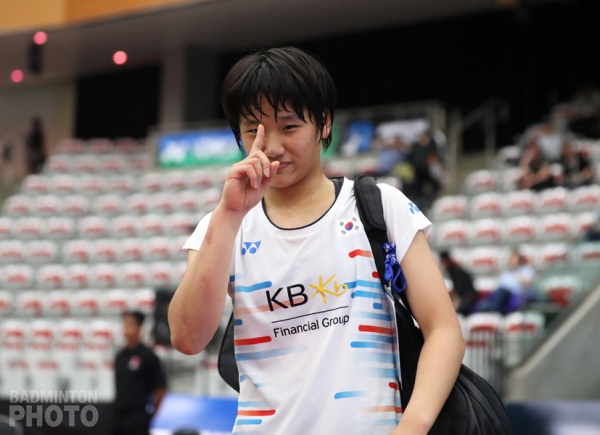
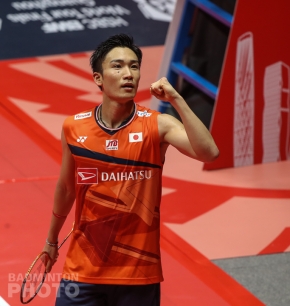
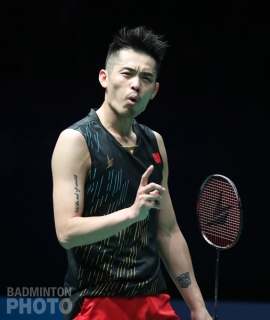
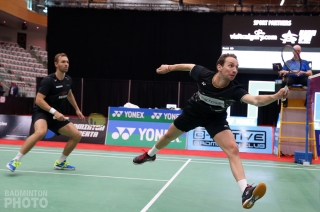
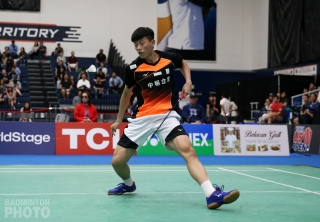
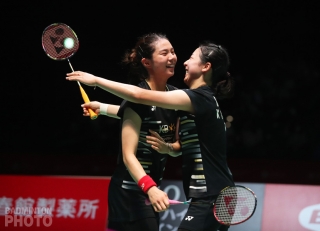
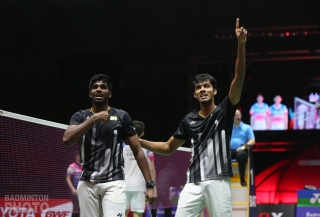
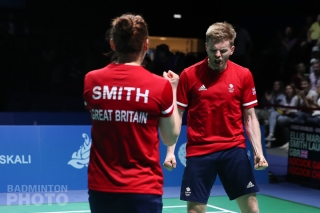
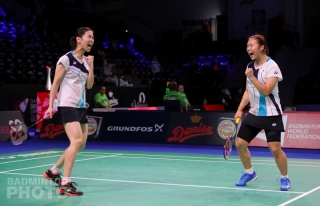
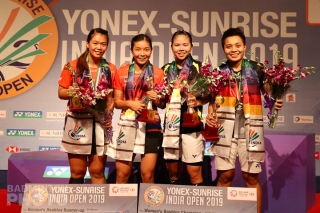
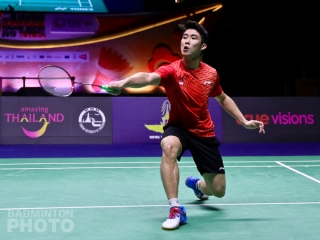
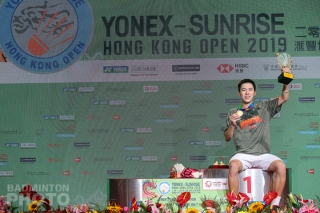
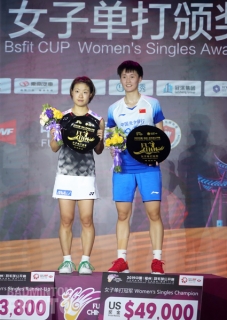

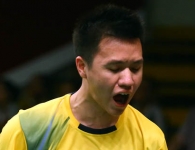
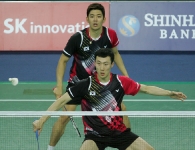
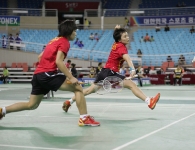
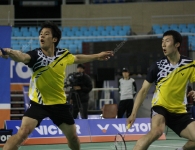
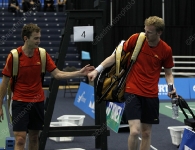

Interesting statistics. Just a small correction, Lin Dan won the Malaysia Open for the first time in his career in 2017, not 2019 as written in the article. He was 33 years old at that time.
Thank you for the correction. The text of the article should now be accurate. Glad you enjoyed the stats that were correct and all the best for 2020!
Thanks for the insights